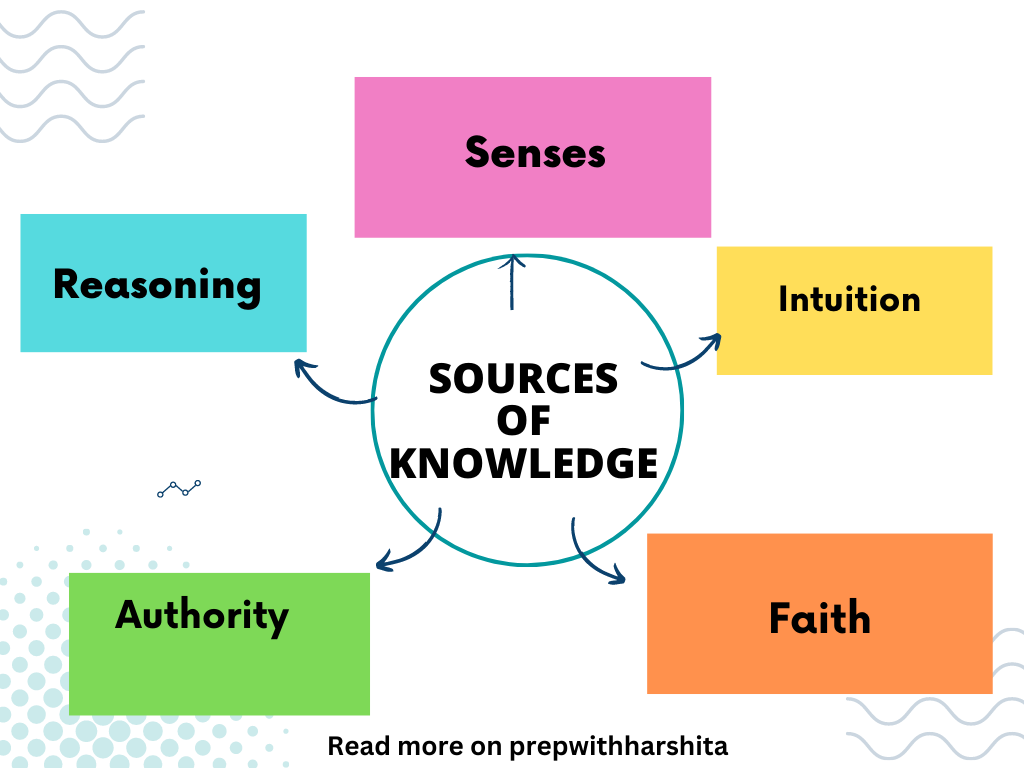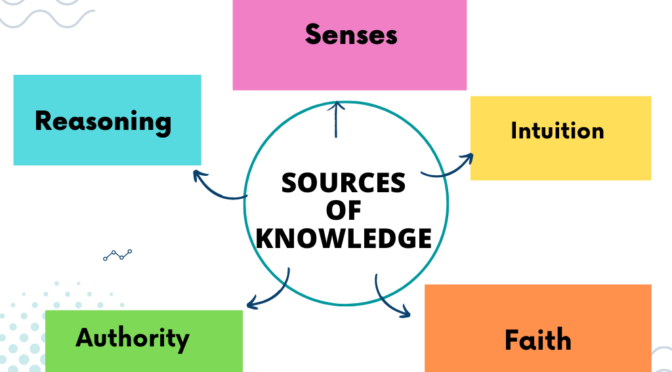Sources of knowledge can be categorized into several main types, including sense experience, faith, authority, reason, intuition, and revelation. Each of these sources offers a unique perspective on acquiring knowledge.
Here’s a brief explanation of each:
- Sense Experience: Sense experience is the most fundamental source of knowledge. It involves gathering information through our five senses—sight, hearing, touch, taste, and smell. This type of knowledge is based on direct observation and interaction with the world around us. For example, seeing a rainbow, feeling the warmth of a fire, or tasting a ripe fruit are all examples of knowledge gained through sense experience.
- Faith: Faith is a source of knowledge that relies on belief and trust in something without empirical evidence or logical proof. It often involves religious or spiritual beliefs but can extend beyond that as well. Faith provides individuals with a framework for understanding the world, answering existential questions, and guiding their moral values and behaviors. It can offer knowledge about the meaning of life, the existence of a higher power, or the nature of the divine.
- Authority: Authority as a source of knowledge involves relying on the expertise and credibility of others who possess specialized knowledge or experience in a particular field. This can include experts, professionals, scholars, or individuals in positions of authority. Authority can provide knowledge by consulting reliable sources, such as academic research, expert opinions, or trusted publications. We often turn to authority when we lack personal expertise or when the information is beyond our direct experience.
- Reason: Reason is the use of logical and rational thinking to acquire knowledge. It involves critical thinking, deductive and inductive reasoning, and evaluating evidence and arguments. Reasoning allows us to analyze information, draw logical conclusions, and make informed judgments. Through reason, we can identify cause-and-effect relationships, recognize patterns, and make logical deductions. Reasoning is crucial in scientific inquiry, problem-solving, and decision-making.
- Intuition: Intuition is a source of knowledge that relies on instinctive or “gut” feelings without conscious reasoning or evidence. It involves a deep understanding or insight gained without apparent logical processes. Intuition is often associated with subconscious information processing and drawing on past experiences. It can manifest as a “hunch” or an immediate understanding of a situation without being able to articulate why. While intuition can be influential in decision-making, it is subjective and can vary between individuals.Intuitions sometimes conflict.
- Revelation: Revelation refers to knowledge that is believed to be revealed by a divine or supernatural source. It is often associated with religious or spiritual experiences in which individuals claim to receive direct communication or insight from a higher power. Revelation can provide profound insights into religious doctrines, moral principles, or metaphysical truths. However, it is subjective and personal, relying on individual experiences or claims of divine intervention. This source has the same problem as intuition. Sometimes one claims to know something by means of revelation. For example, “It was revealed to me in a dream” (or a vision).
It’s worth noting that these sources of knowledge are not mutually exclusive, and they can interact and complement each other. For example, scientific discoveries may be based on both sense experience and reason, while religious beliefs may incorporate elements of faith and revelation. Critical thinking and evaluating evidence are important for assessing the reliability and validity of knowledge gained through these various sources.



include reference please, it is a good article to lead
Your point of view caught my eye and was very interesting. Thanks. I have a question for you.
Pingback: ปั้มไลค์